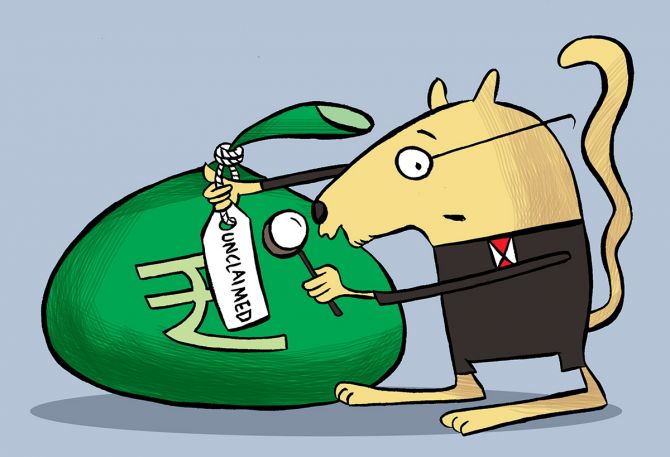In numerous instances, family members are unaware of an insurance policy's existence, let alone its details.

Life insurance policies sold through agents tend to have a higher rate of unclaimed funds compared to those sold via the bancassurance channel or digital platforms, according to a recent report in Business Standard.
"Unclaimed life insurance funds refer to the death or survival benefits from policies that have not been claimed by beneficiaries or policyholders," says Tarun Mathur, co-founder and chief business officer, Policybazaar.com.
Policyholders and beneficiaries need to be proactive to avoid funds that belong to them from going unclaimed.
Why funds go unclaimed
1. Lack of awareness
If policyholders fail to share crucial details with their beneficiaries, it can hinder the claim process.
"We have come across instances of families being unaware of the purchase of a life insurance policy," says Amish Banker, senior executive vice president, customer service and operations, ICICI Prudential Life Insurance.
Naval Goel, CEO, PolicyX, points out that policies can remain unclaimed due to beneficiaries predeceasing the policyholder or the absence of a nominated beneficiary.
Sometimes, the nomination is not filled or updated with the insurer.
Policyholders should update their mobile number, email address, bank details and address with the insurer.
"Updating the beneficiaries' contact details is crucial for the insurer to identify rightful beneficiaries in case of unforeseen events," says Mathur.
2. Forgotten policies
People with multiple policies may forget those purchased years ago or for small sums.
"Since many policies have long tenures, sometimes extending up to 100 years, policyholders at times forget about certain policies," says Goel.
3. Know-your-customer updates
Failure to update KYC documents or bank details can also prevent policyholders or beneficiaries from claiming benefits.
Sometimes, policyholders cannot be contacted due to change of address and other contact details due to, say, marriage, relocation to a different place or abroad or a switch to non-resident status.
5. Claims not submitted
Policyholders and beneficiaries need to proactively initiate the claims process.
"A significant portion of unclaimed funds arises due to policyholders failing to submit maturity claims or death claims," says Gagandeep Singh, senior president and head of health, Life PoSP vertical, PolicyBoss.com. Sometimes, claims are deemed non-payable due to disputes or other reasons.
Business insurance
In these policies, unclaimed funds can arise due to disputes among partners or the dissolution of partnerships and companies.
"Disputes may arise in keyman insurance policies if employers or proposers refuse to pay," says Singh.
Where are unclaimed funds parked
Insurers try to locate and notify beneficiaries through letters, phone calls and other means of communication.
If no response is received within 12 months, the amount is classified as unclaimed.
These funds are transferred to the 'unclaimed funds' account and invested in market-linked funds.
"These funds are invested according to unclaimed fund regulations and are expected to earn four per cent or more per year," says Sanjay Arora, executive vice president and head of operations, Tata AIA Life Insurance.
When policyholders or nominees reach out, insurers pay them the death or maturity benefit.
Goel says that after 10 years, unclaimed funds are transferred to the Senior Citizens' Welfare Fund.
Checking for unclaimed funds
Policyholders or beneficiaries should search the insurer's Web site for these funds.
"Insurers are required to display information about unclaimed amounts of Rs 1,000 or more on their Web sites," says Banker.
Insurers offer online search facilities on their websites.
"Individuals can search for outstanding claims using basic details such as the policyholder's name, date of birth, policy number, and permanent account number," says Vighnesh Shahane, managing director and CEO, Ageas Federal Life Insurance. The customer support department of insurers also provides guidance.
Policyholders and beneficiaries can also visit a branch. Insurers usually ask for bank details and KYC documents.
"If a beneficiary reaches out for death benefit, their identity proof, policy document and proof of relationship with the deceased are asked for," says Goel.
Prevent unclaimed funds from arising
Policyholders must maintain records of all their policies and keep their family members informed. "Share policy details, contact information, and instructions for filing claims," says Singh.
Regularly review policies to assess changing needs, update beneficiary information and ensure that policies remain active.
"Regular reviews help policyholders stay informed about their coverage and minimise the risk of funds being left unclaimed," adds Singh.
Shahane emphasises that nominee bank details are crucial for processing unclaimed amounts.
Arora adds that customers should update their NEFTs to ensure they can receive instant payments.
- Insurers must transfer unclaimed policyholder amounts that are over 10 years old to the Senior Citizens' Welfare Fund by March 1 each year.
- Policyholders or beneficiaries can claim their dues within 25 years from the date of transfer from the insurer to the SCWF.
- According to Section 126 of the Finance Act, 2015, unclaimed funds will escheat (be taken over) to the central government if not claimed within 25 years, according to the Irdai master circular.

Feature Presentation: Rajesh Alva/Rediff.com












 © 2025
© 2025